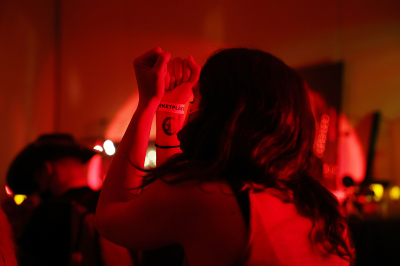
I bet that if you totaled up and ranked all the words and books written in the history of humankind, first place would be given to the subject of God and some kind of salvation in this life (however that’s defined by the author). But I’d wager second place would go to the topic of evil and why it exists.
One of the more interesting recent attempts at exploring and explaining evil came from Columbia professor Andrew Delbanco a couple of decades ago in his book The Death of Satan in which he argued Americans have lost the idea of what evil is and represents. Delbanco rightly notes that people today think of themselves as good, the moral pinnacle of the evolution process, and that “the very notion of evil seems to be incompatible with modern life, from which the ideas of transgression and the accountable self are fast receding.”
But Delbanco challenges that mood with the fact that the 20th century was the most brutal period ever in human history, a Lord of the Flies reality, all of which occurred when the West in particular jettisoned the idea of a cosmic, transcendent, and supernatural evil. Delbanco says, “We don’t believe in that. We don’t even like to use the word evil because it implies value judgments and moral absolutes. So, we use medical terms like dysfunction and we talk about pathology.”
But Delbanco says such a thing doesn’t fly and that, in the end, “We have no language for connecting our inner lives with the horrors that pass before our eyes in the outer world … we cannot do without some conceptual means for thinking about the universal human experience of cruelty and pain.”
And without that, so many of us become desensitized to evil and act in a manner where, as Delbanco puts it, “We shudder or wince; and then switch the channel.”
Naturally, as a Christian, I think he’s right and affirm that the devil is an actual reality. But why does Delbanco (who’s not a Christian; he describes himself as a “non-observant Jew”) reach that conclusion? Why can’t we just delete the devil?
Many today have. They poo-poo the idea of the entity Jesus called “the prince of this world” (John 12:31; 16:11), much like psychologist Henry Murray who described Satan as “no more than a vestigial image, a broken-spirit relic of an ancient past, a ludicrous ham actor with no greater part to play in man’s imagination than the vermiform appendix in his gut.” He’s joined by 42% of Americans in a recent Gallup poll who deny the devil’s existence.
But at the same time, as a recent AP news article notes, there has been a spike in “satanic” worship. Just not the kind that most likely pops into your head when you hear the term.
The article says, “while they embrace the term Satanist, they don’t revere or believe in Satan … Rather than gods, they praise humankind.”
“You are the owner of your present and future, there is no God that makes decisions for you,” states one Satanic Temple member. “In Satanism there are no solutions or absolute truths. You are your own god and you create your own reality,” says another.
Oddly enough, the article mentions that “once they are accepted, members can choose a new name — normally that of a demon or fallen angel — with which they will be identified inside the Temple and among other associates.” Now that’s a head-scratcher; if you don’t believe in Satan, how can you believe in demons / fallen angels? But I digress.
What sends a shiver down my spine with all this is that, while the Bible says we are made in the image of God (Gen. 1:27), so many people are cementing a worldview in their minds with the above declarations, whether declared Satanist or not, that they are unwittingly remaking themselves in the image of the devil.
Reread the statements of the Satanic Temple members and tell me it doesn’t dovetail with the “I will…” declarations of the devil in Isaiah 14, all of which end with “I will make myself like the Most High” (vs. 14). Ditto the waving away of absolute truth in a “has God said?” (Gen. 3:1) fashion.
Both go on all day, every day, just like Lionel Tiger, a professor of anthropology at Rutgers University, says in painting our culture as “individual people with fully fledged private moralities to conduct business without personal liability.”
That attitude has resulted in a mostly anything-goes society designed to absorb and cause our wrongdoings to supposedly disappear, much like John Updike describes in his novel The Witches of Eastwick, where a character grinds a bit of spilled tea into an oriental rug and remarks, “The greatest thing about Orientals is they don’t show your sins.”
Oh, but they do show — oftentimes instantly, sometimes tragically, but always eventually.
In his book, Delbanco says: “So the work of the devil is everywhere, but no one knows where to find him.” Maybe we’re just not looking hard enough.
The fact is he is, although not omnipresent, everywhere in a different sense. It’s hard to erase the devil when his desires, thoughts, and actions are manifested by so many.
In an episode of “The Mayor of Kingstown,” a woman who’s been abused her whole life says to the “mayor” that she doesn’t believe in God but absolutely believes in the devil because his disciples are everywhere, living out their master’s commands. “The devil is us”, she heartbrokenly says.
I’d say she’s both right and wrong.
She’s right in that everyone who’s ever lived has left this life having one of two spiritual fathers. Either they were a “bond-servant of Christ” (Rom. 1:1) having God as their Father or remained “in the snare of the devil, having been held captive by him to do his will” (2 Tim. 2:26). In the same way the “ian” portion of “Christian” is an adjectival ending borrowed from Latin to denote “adhering to, or even belonging to, as in slave ownership,” there are “Satanians” who represent their owner as well.
But she’s wrong in that an actual devil does exist, one that British writer Ian McEwan describes as a: “Malign principle, a force in human affairs that periodically advances to dominate and destroy the lives of individuals or nations, then retreats to await the next occasion.”
Try as we might, we can’t delete Satan now, but we look forward to the day he’ll get canceled for good as Scripture says: “The God of peace will soon crush Satan under your feet” (Rom. 16:20).
Now that’s something for which I want a front-row seat.
Robin Schumacher is an accomplished software executive and Christian apologist who has written many articles, authored and contributed to several Christian books, appeared on nationally syndicated radio programs, and presented at apologetic events. He holds a BS in Business, Master’s in Christian apologetics and a Ph.D. in New Testament. His latest book is, A Confident Faith: Winning people to Christ with the apologetics of the Apostle Paul.








